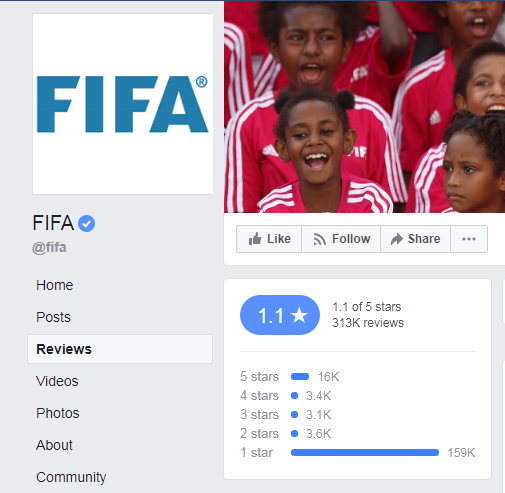When the Croatian Football Federation fired associate coach Ognjen Vukojević for appearing in an ostensibly pro-Ukrainian video during the World Cup in Moscow, it wasn’t the only one punishing him. International soccer association FIFA also fined him 15,000 Swiss francs ($15,150).
Now, the Football Federation of Ukraine, or FFU, is stepping up with a helping hand. On July 10, the federation’s president, Andriy Pavelko, announced that his organization would pay the coach’s fine.
“We in the FFU have decided to compensate Vukojević for the fine and, if he thinks it possible, to offer him work at the FFU,” Pavelko, who is also a lawmaker, told journalists at the Verkhovna Rada. The organization is looking into helping Vukojević appeal against the fine in the Court of Arbitration for Sport.
Pavelko challenged the claim that Vukojević’s statement inserted politics into sports and promised to raise the issue with FIFA in Zurich, the Ukrainska Pravda newspaper reported.
The controversy began on July 7, after Croatia defeated Russia in a penalty shootout. After the victory, Ognjen Vukojević and teammate Domagoj Vida, who had both previously played for Dynamo Kyiv, recorded a video featuring the words “Glory to Ukraine!” Soon, it appeared on social media.
The phrase became one of the slogans of Ukraine’s 2014 EuroMaidan Revolution, and since then has grown into a popular and mainstream expression associated with Ukrainian patriotism.
In the video, Vukojević shouts, “Glory to Ukraine,” and Vida responds, “This is a victory for Dynamo and Ukraine. Croatia, onward!”
The video provoked anger among some Russian social media users, while Ukrainians defended the slogan. However, FIFA — which generally forbids political statements during the World Cup — was not amused. It issued a formal warning to Vida and fined Vukojević.
The Croatian Football Federation or HNS went even further, issuing a formal apology for the two men’s actions.
“HNS hereby apologizes to the Russian public for the actions of a member of the Croatian delegation,” it said in a statement. “Ognjen Vukojević and Domagoj Vida likewise apologize for their statements, which were in no way intended to have political connotations, yet which unfortunately left room for such interpretations.”
Since Vukojević’s firing and fine, the controversy has hardly calmed.
In the wake of the first video, a second video showing Vida shouting “Glory to Ukraine” also appeared online. This one, however, featured the player alongside Ivica Olić, who formerly played for Moscow’s TsSKA club and the Croatian National Team and currently serves as one of the team’s trainers. Although undated, the video appeared to have been filmed during the World Cup.
Serbian news site Alo.rs suggested this message, which also featured the words “Belgrade is burning” and a Serbian song, may have been at greeting directed at the owner of a Kyiv restaurant called Belgrade.
Oleksiy Kuzmenko, a Ukrainian journalist based in Washington, D.C., later reported on Twitter that the expression “Belgrade is burning” figuratively means “Belgrade is celebrating” and is the name of the city’s Partisan soccer club’s championship song.
On July 10, Lviv mayor Andriy Sadovy took to Facebook to call on the Football Federation of Ukraine to include the words “Glory to Ukraine” in the national team’s official emblem.

An image of FIFA’s rating on Facebook as of midday on July 10, 2018.
Meanwhile, Ukrainian Facebook users took aim at FIFA’s official page on the social network, writing “Glory to Ukraine” and critical remarks on the page and leaving 1-star reviews of the organization.
As of approximately 2 p.m. Kyiv time on July 10, FIFA had 159,000 1-star reviews, compared to 16,000 5-star reviews, and an overall rating of 1.1. Shortly thereafter, the organization removed the review feature from its Facebook page.
